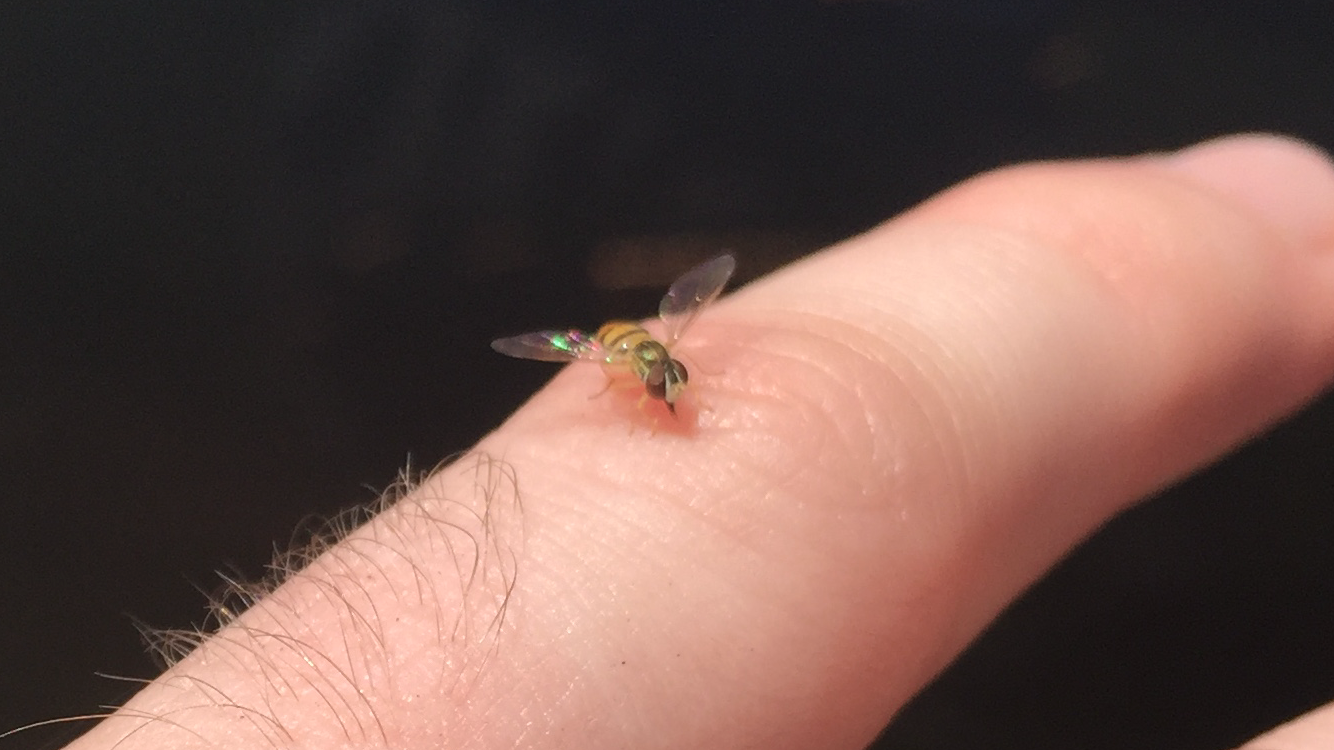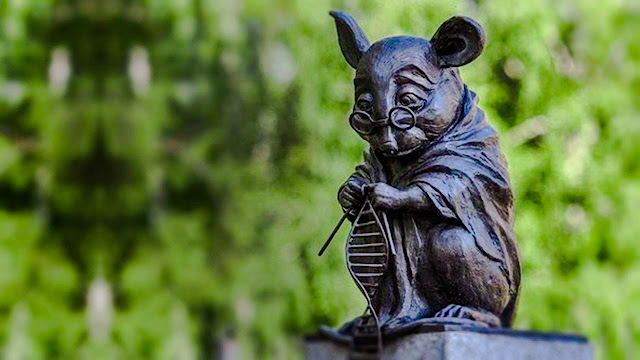7 reasons to thank a fly
What have our little buzzing buddies done for us?
1. You know chromosomes? Those bundles of neatly packaged DNA lurking in your cells? Well you wouldn't if the humble fly hadn't been there for Thomas Hunt Morgan in the early 1900s. Chromosomes were first discovered in fruit flies during some of the earliest studies in the field of genetics.

2. Our understanding of sex chromosomes, those DNA bundles that determine what bits we have, come from flies too. Thomas Morgan was a busy researcher and this is another discovery that wouldn't have some so readily without the humble fly. It's short lifespan makes it fantastic for studying patterns of inheritance that lead to this discovery.

3. We learned about the genes behind brain and nervous system development. A series of genes that have been integral to understanding how brains develop and function, even in humans, were first discovered in flies through the mid to late 1900s.

4. Genes that guide the connections between neurons and muscles were first discovered in flies in the 1950s.

5. Genes that play a role in building sensory organs like the hairs in our ears that help us hear and the touch receptors under our skin were first discovered in flies. Thanks little buddies!

6. We have learned a lot about circadian rhythms, natural sleep-wake cycles, by studying the habits of our little flies. Rest well flappy friends!

7. By associating certain smells with shocks early research into memory was established.

Thanks flies!
1. You know chromosomes? Those bundles of neatly packaged DNA lurking in your cells? Well you wouldn't if the humble fly hadn't been there for Thomas Hunt Morgan in the early 1900s. Chromosomes were first discovered in fruit flies during some of the earliest studies in the field of genetics.

2. Our understanding of sex chromosomes, those DNA bundles that determine what bits we have, come from flies too. Thomas Morgan was a busy researcher and this is another discovery that wouldn't have some so readily without the humble fly. It's short lifespan makes it fantastic for studying patterns of inheritance that lead to this discovery.

3. We learned about the genes behind brain and nervous system development. A series of genes that have been integral to understanding how brains develop and function, even in humans, were first discovered in flies through the mid to late 1900s.

4. Genes that guide the connections between neurons and muscles were first discovered in flies in the 1950s.

5. Genes that play a role in building sensory organs like the hairs in our ears that help us hear and the touch receptors under our skin were first discovered in flies. Thanks little buddies!

6. We have learned a lot about circadian rhythms, natural sleep-wake cycles, by studying the habits of our little flies. Rest well flappy friends!

7. By associating certain smells with shocks early research into memory was established.
Thanks flies!


Comments
Post a Comment